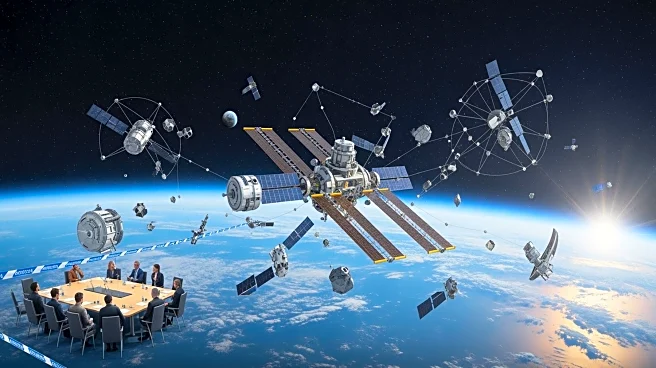What's Happening?
The European Space Agency (ESA) has introduced a space environment health index to assess the long-term impact of space debris on Earth's orbit. This index provides a single score reflecting the health of Earth's orbit over the next 200 years, considering
factors such as the number of satellites launched, their size, shape, and ability to maneuver to avoid collisions. The initiative aims to quantify the risk posed by space debris, which includes nearly 30,000 tracked pieces and hundreds of thousands of smaller fragments. The index is designed to promote better practices in space missions, encouraging satellite operators to minimize debris generation and improve orbital sustainability.
Why It's Important?
The introduction of the space environment health index is crucial for mitigating the risks associated with space debris, which threatens future space missions, including weather satellites, GPS systems, and internet services. As space becomes increasingly crowded, the risk of collisions and mission failures rises, potentially leading to significant economic and operational disruptions. The index serves as a tool for regulators, insurance companies, and mission designers to assess and improve the sustainability of space activities, ultimately aiming to prevent the escalation of debris-related hazards.
What's Next?
ESA's Zero Debris goal, aiming to stop all debris generation from its missions by 2030, highlights the urgency of addressing the space debris issue. The space environment health index will guide future mission designs, regulatory decisions, and insurance assessments, promoting cleaner and safer space operations. As the cost of operating in space increases due to debris, stakeholders must prioritize sustainable practices to ensure the long-term viability of space activities.
Beyond the Headlines
The space environment health index not only tracks progress but also influences pre-launch decisions, encouraging satellite missions to adopt better practices. This proactive approach is essential to prevent space from becoming unusable and to avoid the high costs associated with debris cleanup. The index provides a measurable framework for assessing the impact of space activities, fostering a common language for global space sustainability efforts.

















